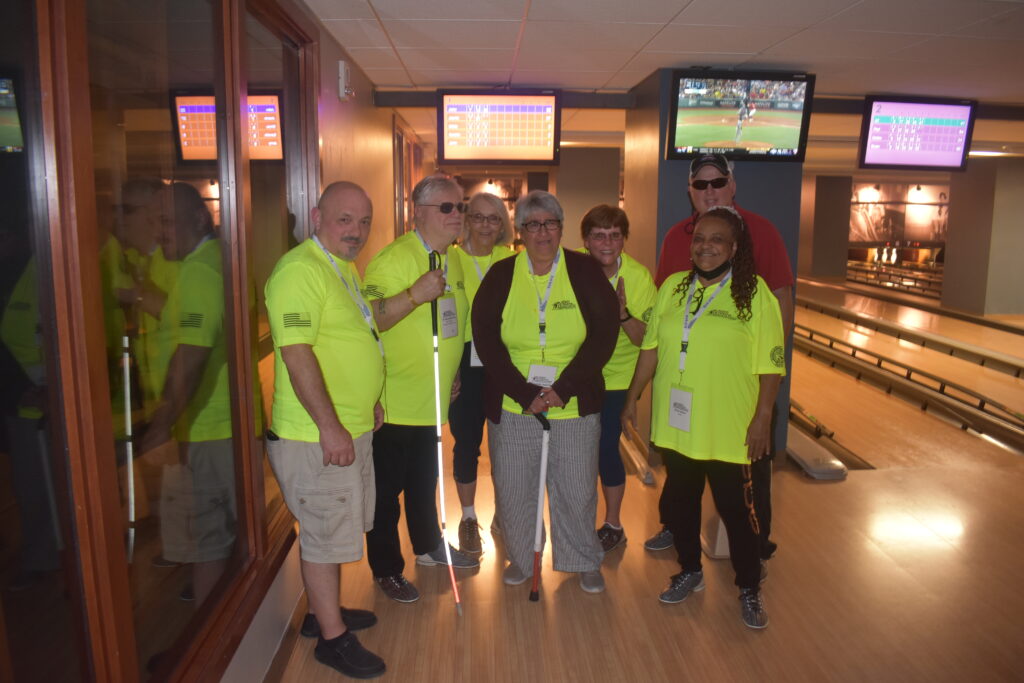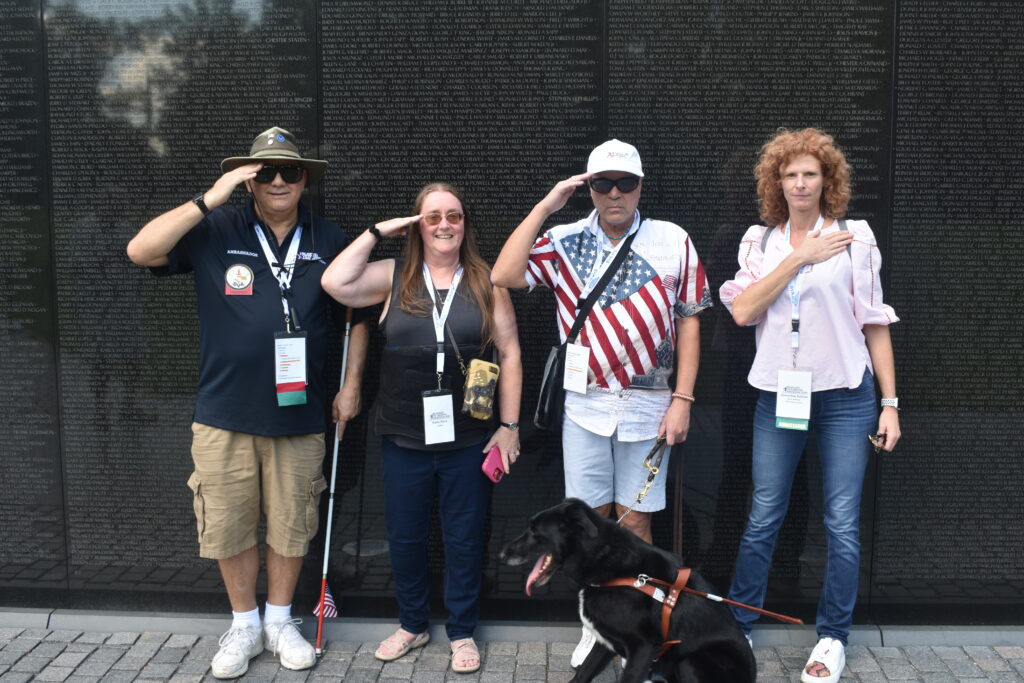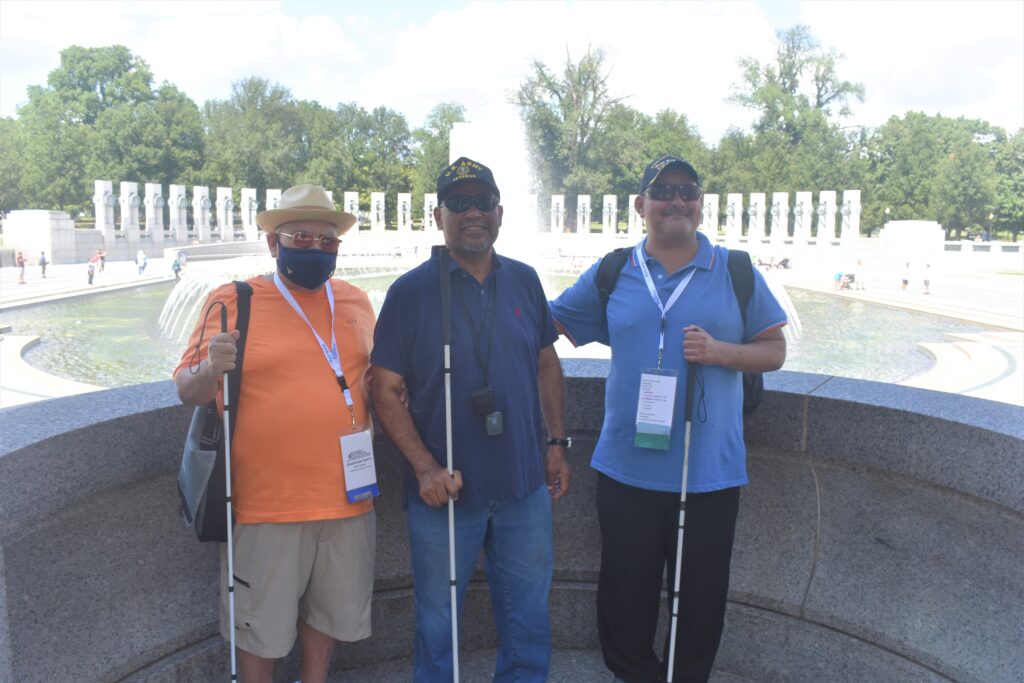Thanks to an FFF sponsorship, the Blinded Veterans Association will offer bowling and other activities to members at its annual convention later this summer.

Blinded Veterans Association Chief of Staff Tim Hornik served in the U.S. Armed Forces from 2002-2011. In November 2004, he was in command of a patrol on a combat operation in Iraq when he was shot in the head by a sniper.
Hornik survived, but became blind instantly. The bullet had destroyed his retina and severed his optic nerve. He remained on active duty until he decided to leave the military seven years later.
After working as an admissions coordinator at the Western Blind Rehabilitation Center in California, Hornik relocated to Kansas. He was familiar with the Blinded Veterans Association, having previously served on its Board of Directors. After talking with executive director Don Overton, Hornik agreed to take a position working with the association’s technology program before becoming chief of staff last summer.
“My position has undergone a couple of name changes since coming on board,” said Hornik, who received a master’s in social work from the University of Kansas in 2010. “We’re slowly and steadily expanding what it is I am doing with the organization.”
The BVA is the only national Veterans Service Organization (VSO) chartered by the United States Congress. Founded in 1945, BVA is dedicated to providing assistance for blinded veterans and their families. Run by blinded veterans, it has worked tirelessly for better quality of medical and rehabilitative services and benefits to its membership.
Currently, BVA has approximately 6,400 members and 32 standing affiliate regional groups around the country. Unlike other organizations serving the blind, BVA is structured around regional groups that operate as separate entities, rather than chapters controlled under one national body.
“They’re all their own independent operating nonprofit organizations. They get instruction and some oversight from us here at national, as well as national appropriations from our lifetime membership funds.”
Anyone having honorably served or is currently serving in the U.S. Armed Forces qualifying for VA blind rehabilitation services may join BVA, subject to qualifying conditions. Individuals must have a visual impairment that impacts daily life. Verification of vision loss may be provided by an ophthalmologist, optometrist, visual impairment services team coordinator or blind rehab outpatient specialist.

“Folks that (the VA) serves will come to us, and folks we serve we send to them. We have this informal relationship of supporting each other.”
Advocacy is one of the main objectives of BVA’s vision. Over the years, the association has successfully advocated for improved benefits, housing and other services. BVA works closely with other blind organizations and is represented on a variety of federal and state advisory committees including the VA Central Office, Department of Labor and Small Business Administration.
Getting access to programs and services is a constant challenge, not only for blinded veterans but the blind population as a whole. Whether it’s obtaining adaptive technology, suitable housing, or navigating websites without sight, BVA is committed to providing opportunities for its members to engage with their communities and peers.
“Blindness is a niche. We are such a small fraction of the U.S. population that we are often forgotten. It’s kind of interesting because if you ever ask anyone what’s the condition they fear having the most, blindness is usually the number one disability no one wants.”
Sports and recreation activities also play a role in developing a blinded veteran’s quality of life. At its annual convention, BVA has a number of fun events for its members including walking, bowling and visits to museums and other local attractions. The 2023 convention, to be held in St. Louis in August, features a private Gateway Arch Riverboat Cruise, trips to Anheuser-Busch and a botanical garden, and BBQ and Bowl Bash sponsored in part by the Foreseeable Future Foundation.
Hornik has been acquainted with Foreseeable Future CEO Griffin Pinkow since 2018, so he is excited to partner with the foundation for the barbecue and bowling event.
“What they’re trying to do aligns with what we’re trying to do. The first major sponsor we received (in 1945) was a women’s bowling league that came together and provided us with the funding to get the BVA up and going. So we have this great historical context. Without them coming on board and helping us out, we would not be here as an organization.”

While many sports have been modified specifically for the blind, not everyone has the ability to participate in them. Bowling, Hornik says, is one that most people can do.
“A lot of members are able to enjoy doing it. It’s creating those types of touch points that speak to where they are, who they are and what they want to do as an introduction to hopefully help them get going.”
As a blinded veteran, Hornik takes great pride in being part of an organization that strives to improve the quality of life at all levels.
“Knowing that they’re getting the services they need to be successful is, quite frankly, the awesome part of this job. Being able to get members, get folks with visual impairments together to talk, that’s truly where happiness lies.”
